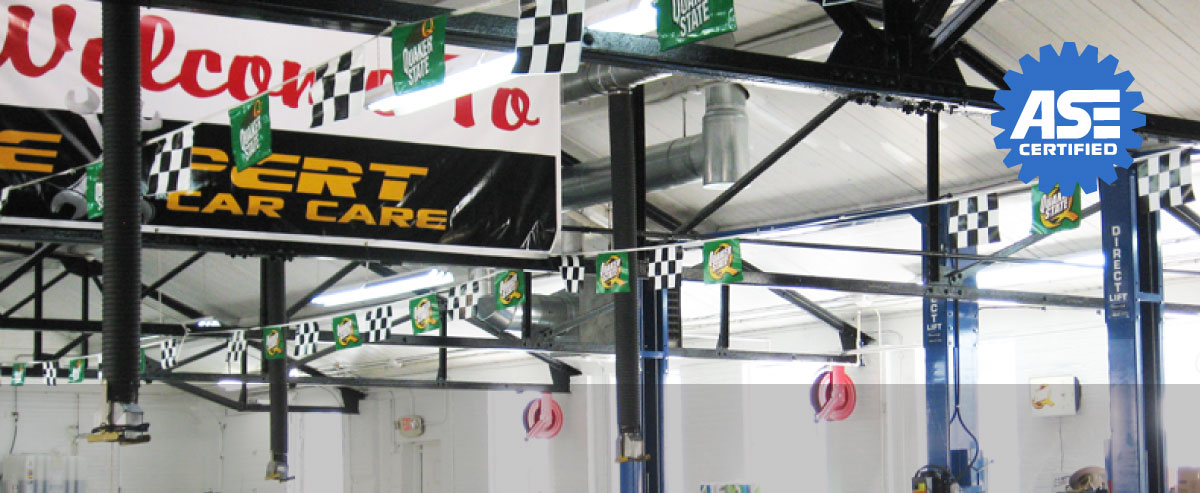Purchasing new tires is a big investment in your vehicle. A complete set of tires typically includes four matching tires and a spare. If you are like most people, it may be hard to come up with that much money very often. So a question often asked by vehicle owners is, “How often do you need to change your tires?”
It is a common practice for tire manufacturers to list the specific lifespan of a tire, which is typically about 50,000 miles. However, the number of miles driven each year plus the quality of the tires are two big factors in determining how many miles your tires will actually last.
Here are some easy and inexpensive tips that will help you take care of your tires:
- Visual Inspection – Look for excessive tread wear, nicks or cuts in the rubber, or nails or punctures.
- Check Inflation Pressure – The right inflation pressure ensures optimal contact with the road, improves fuel economy, and helps the tread wear more evenly. Cold temperatures cause air pressure to fluctuate more rapidly so check the air pressure frequently as winter approaches.
- Load Index – This is the amount of weight your tires are designed to withstand. Overloading can lead to overheating and damage to your tires. Consult your owner’s manual for the right size of tire for your vehicle.
- Rotating Tires – Moving tires around to a different position on your vehicle protects against uneven tread wear. Have your tires rotated about every six months or 6,000 to 8,000 miles (or about every other oil change)?
- Wheel Alignment – Alignment refers to an adjustment of the vehicle’s suspension so that the angles of the tires affect how they make contact with the road.
- Tire Balancing – Keep your tires in balance (weights added to specific areas of the tire) for smooth rolling of the tire.
Compared to the cost of new tires, checking your tires on a regular basis is relatively inexpensive and will help prevent emergency tire repairs that could leave you stranded on the side of the road. The time and frustration you may experience are not worth trying to save a few dollars.
Worried about how often do you need to change your tires? Contact our ASE Certified technicians at Expert Car Care today for more information about needed tire repairs and to schedule an appointment. Our auto shop proudly serves residents in the community of West Allis, WI, and the surrounding area.
Anxious about how often do you need to change your tires? The best way to prevent emergency tire repairs is to keep up with regular tire service and balancing.
Purchasing new tires is a big investment in your vehicle. A complete set of tires typically includes four matching tires and a spare. If you are like most people, it may be hard to come up with that much money very often. So a question often asked by vehicle owners is, “How often do you need to change your tires?”
It is a common practice for tire manufacturers to list the specific lifespan of a tire, which is typically about 50,000 miles. However, the number of miles driven each year plus the quality of the tires are two big factors in determining how many miles your tires will actually last.
Here are some easy and inexpensive tips that will help you take care of your tires:
- Visual Inspection – Look for excessive tread wear, nicks or cuts in the rubber, or nails or punctures.
- Check Inflation Pressure – The right inflation pressure ensures optimal contact with the road, improves fuel economy, and helps the tread wear more evenly. Cold temperatures cause air pressure to fluctuate more rapidly so check the air pressure frequently as winter approaches.
- Load Index – This is the amount of weight your tires are designed to withstand. Overloading can lead to overheating and damage to your tires. Consult your owner’s manual for the right size of tire for your vehicle.
- Rotating Tires – Moving tires around to a different position on your vehicle protects against uneven tread wear. Have your tires rotated about every six months or 6,000 to 8,000 miles (or about every other oil change)?
- Wheel Alignment – Alignment refers to an adjustment of the vehicle’s suspension so that the angles of the tires affect how they make contact with the road.
- Tire Balancing – Keep your tires in balance (weights added to specific areas of the tire) for smooth rolling of the tire.
Compared to the cost of new tires, checking your tires on a regular basis is relatively inexpensive and will help prevent emergency tire repairs that could leave you stranded on the side of the road. The time and frustration you may experience are not worth trying to save a few dollars.
Worried about how often do you need to change your tires? Contact our ASE Certified technicians at Expert Car Care today for more information about needed tire repairs and to schedule an appointment. Our auto shop proudly serves residents in the community of West Allis, WI, and the surrounding area.


